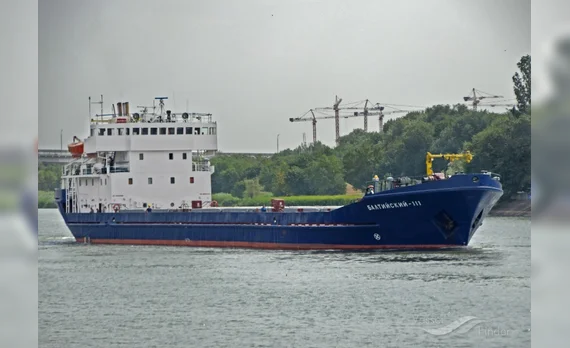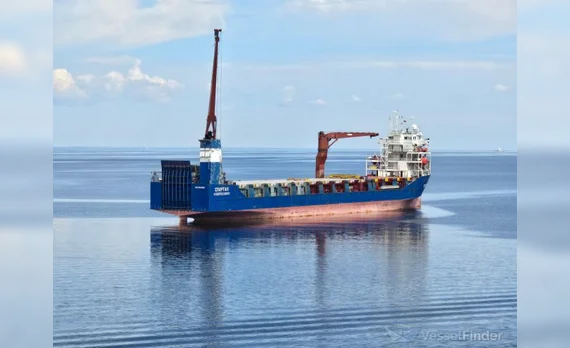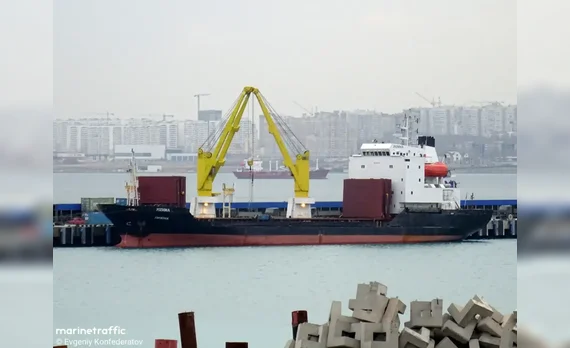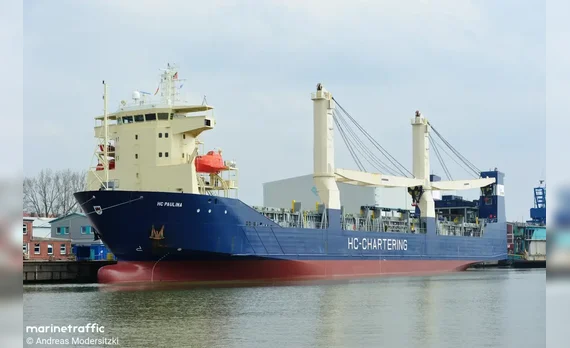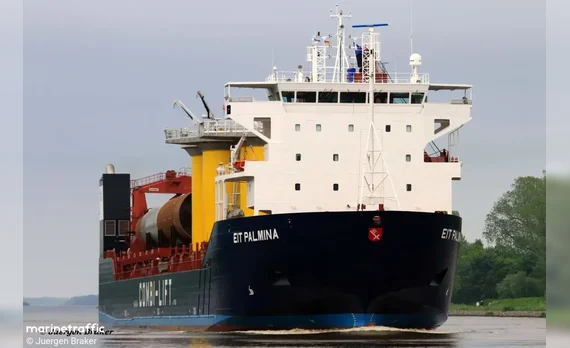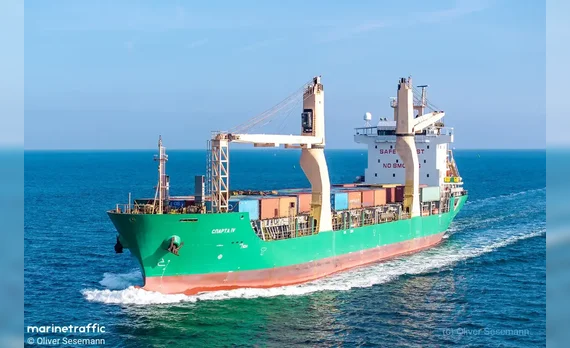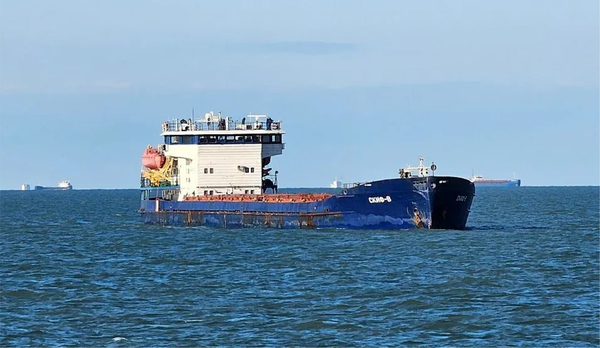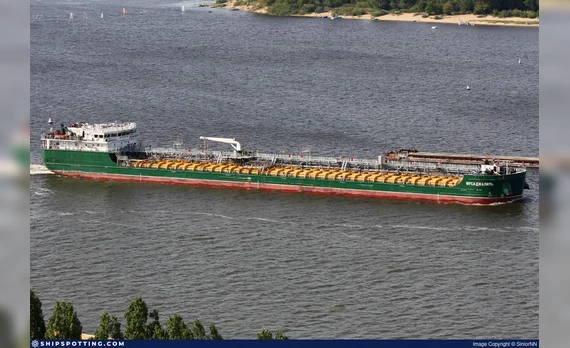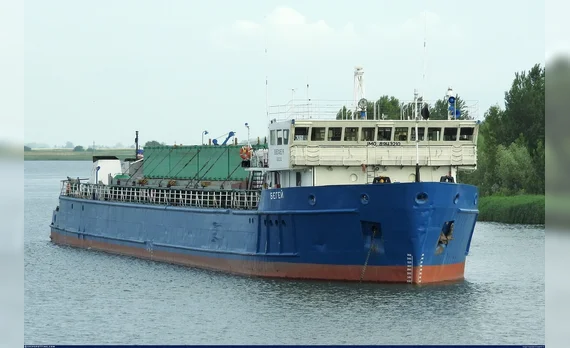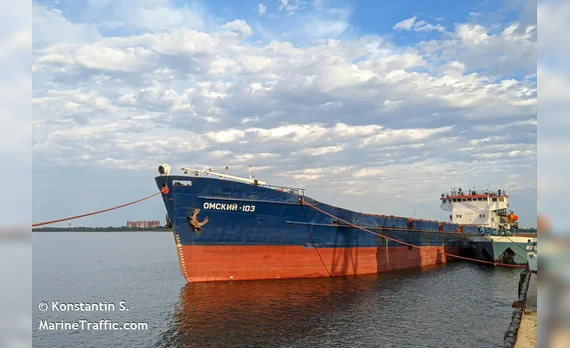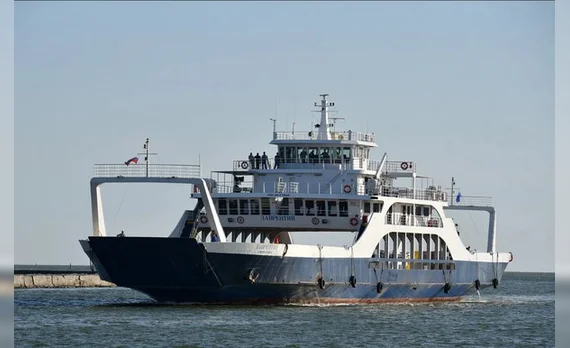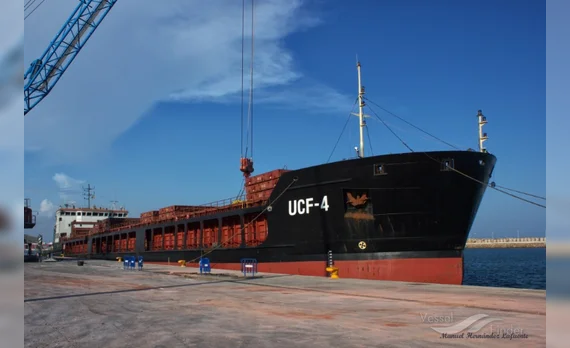The vessel belongs to the sanctioned russian shipping company SK-Yug LLC, a subsidiary of the sanctioned russian company Oboronlogistika LLC. Oboronlogistika LLC. Oboronlogistika LLC is a shipping company that operates within the military construction complex of the russian ministry of defence. The main objectives of Oboronlogistika LLC are to meet the needs of the russian ministry of defence in the transportation, storage and production of military and special-purpose goods. Oboronlogistika LLC is the sole provider of transport services for the russian ministry of defence, transporting troops to certain regions of russia and delivering cargo to temporarily occupied Crimea (Ukraine).
In May 2022, the U.S. imposed sanctions on vessel as a property of SK-Yug LLC.
Engaged by russia for important maritime logistics operations since 2018. The design, certification and capabilities of the Sparta IV make it an excellent transit vessel for large military equipment. Its volumetric payload capacity, two cranes capable of lifting up to 55 tonnes and overall displacement mean the vessel can easily transport heavy military cargo such as the T-90 tanks deployed in Syria.
In 2023, the vessel made at least 6 voyages between the military ports of Tartus, Syria and Novorossiysk, russia: 14-25 January, 01-06 March, 8-15 April, 16-25 May, 25 June-15 July (reportedly unloading military equipment at the port of Novorossiysk), and 10 August. On each of these voyages, the Sparta IV only called at terminals of the russian naval base.
Among the cargoes carried could be missiles for the S-300 SAM system, which is regularly used to shell Kharkiv and frontline Ukrainian cities. Thus "Sparta IV", heading from Syria to the port of Novorossiysk with heavy cargo, on the night of Sunday 05.03.2023 passed the Bosphorus Strait with probably the mentioned missiles on board. The vessel was loaded at the russian naval base in Tartus, Syria. Military vehicles were involved in the loading and the vessel's large holds were opened at the time. When the Sparta IV passed the Bosphorus, it had a draft of 6.2 metres (20 feet), which implies a heavy load.
In addition, the Sparta IV had already delivered military cargoes in August 2022. At that time, russian missiles for the S-300 SAM system were unloaded from the vessel in Novorossiysk.
The russian federation continues to use cargo vessels to move cargo, including military cargo, through the Bosporus and Dardanelles straits.
During 2022-2023, these straits were crossed by russian cargo vessels affiliated with Oboronlogistika LLC, namely: "Sparta IV", "Ursa Major", "Sparta II". The said vessels were operating on the routes Novorossiysk Port (russia) - Bosphorus - Dardanelles - Tartus Port (Syria).
On 15.07.2023 the vessel "Sparta IV" in the port of Novorossiysk was involved in loading artillery systems (probably M-46, D-30 or 2B16 "Nona"), which were delivered by the vessel to the Syrian port of Tartus on 07.08.2023. After that the vessel returned to the port of Novorossiysk, and already on 30.08.2023 made a call to the port of Sevastopol (TOT Crimea), where it made a call on 30.08.2023 in an empty state for scheduled repairs.
In 2024, the vessel continued to operate on the Novorossiysk (russia) - Tartus (Syria) line. In particular, in February 2024, the vessel sailed from Novorossiysk to Tartus together with the tanker ‘Yaz’ (IMO 9735323), the rollers ‘Lady Maria’ (IMO 9220641) and ‘Baltic Leader’ (IMO 9220639), which were first used on the Novorossiysk-Tartus line. In June 2024, the vessel was deployed on the St Petersburg - Kaliningrad container line, where it made two colonies. At the end of June 2024, the vessel made a crossing of the North Sea. It is likely that the vessel will be engaged in the summer to deliver cargoes required for the construction of a new terminal and field development from the port of Arkhangelsk to the port of Bukhta Sever.
